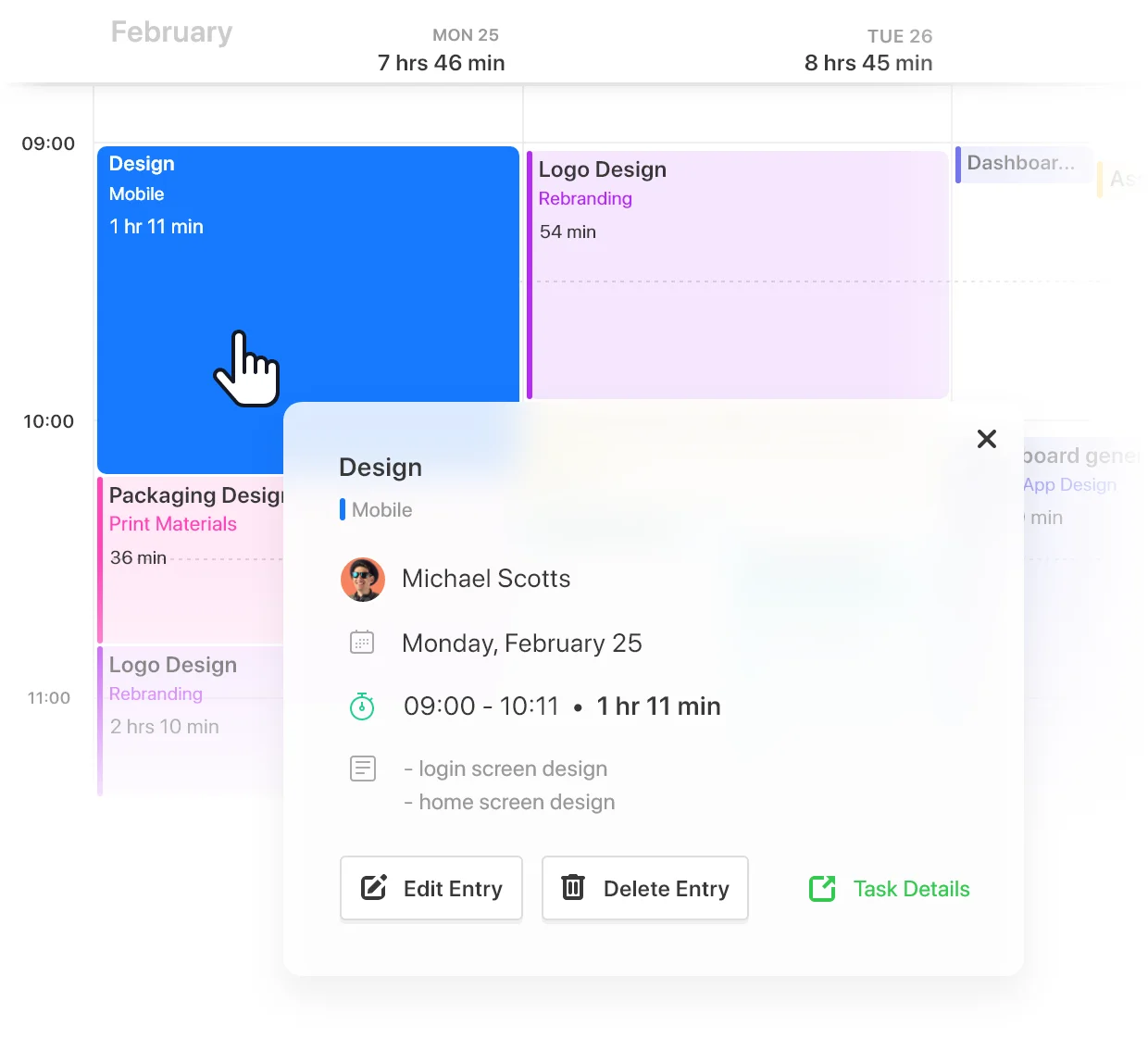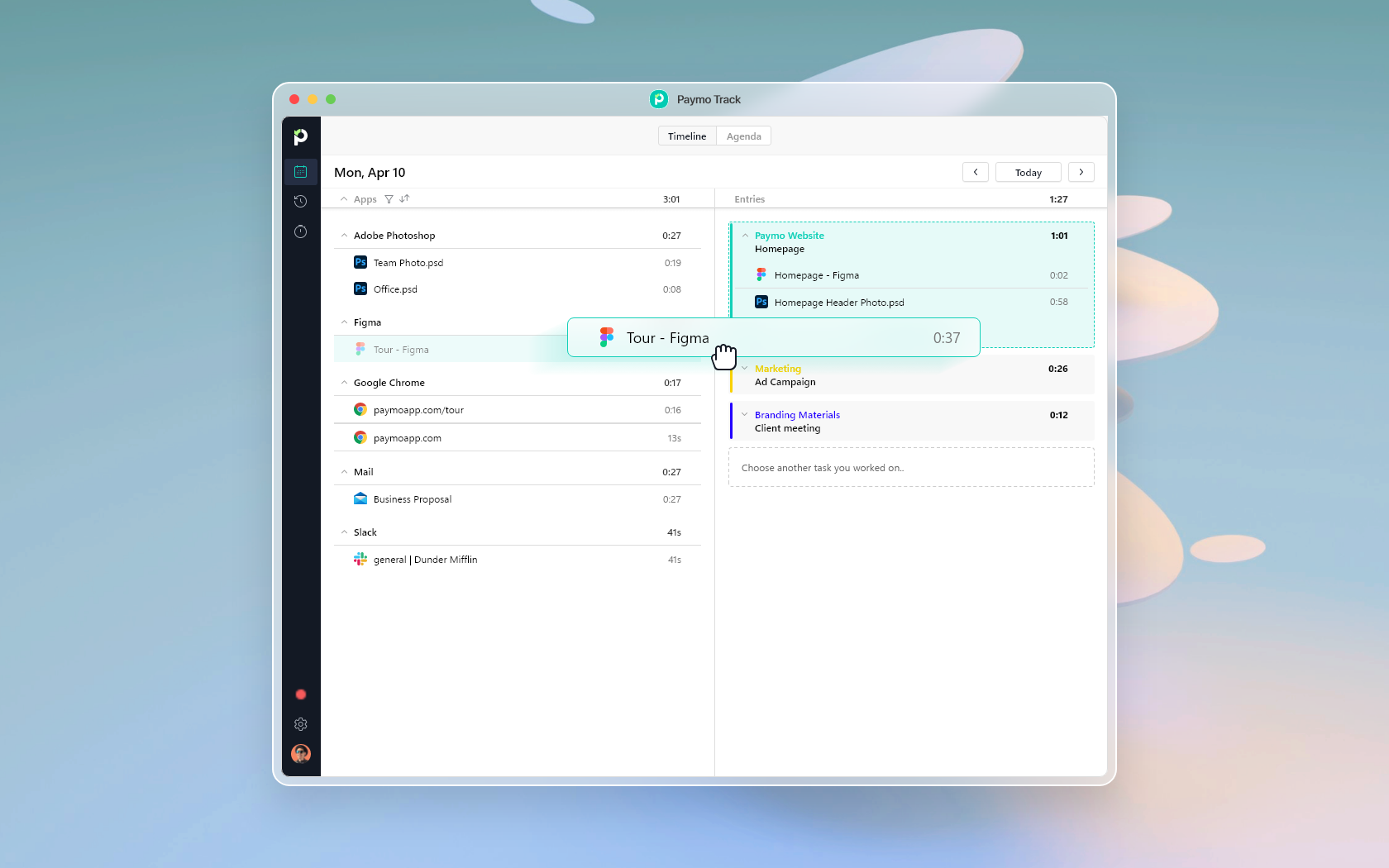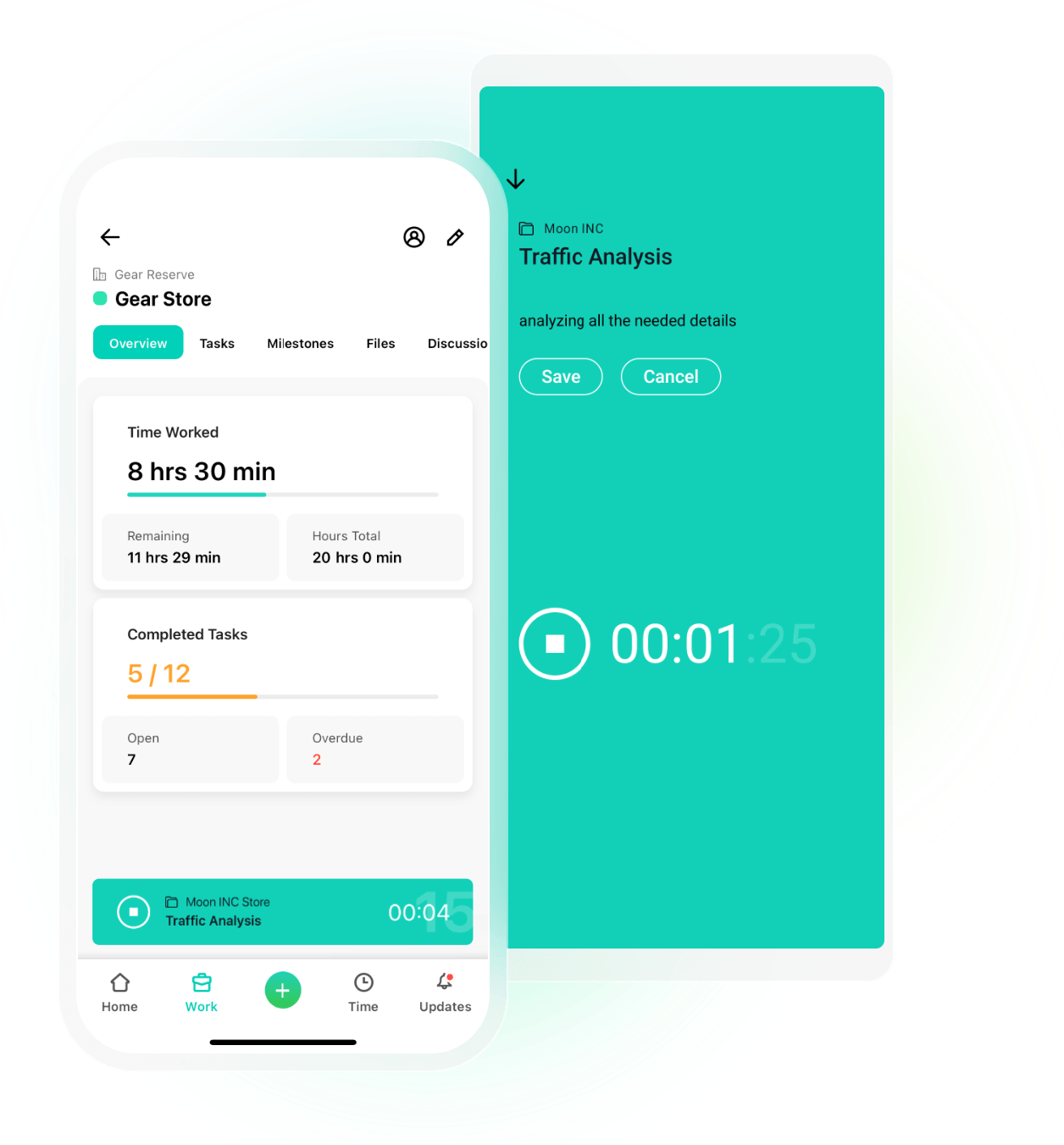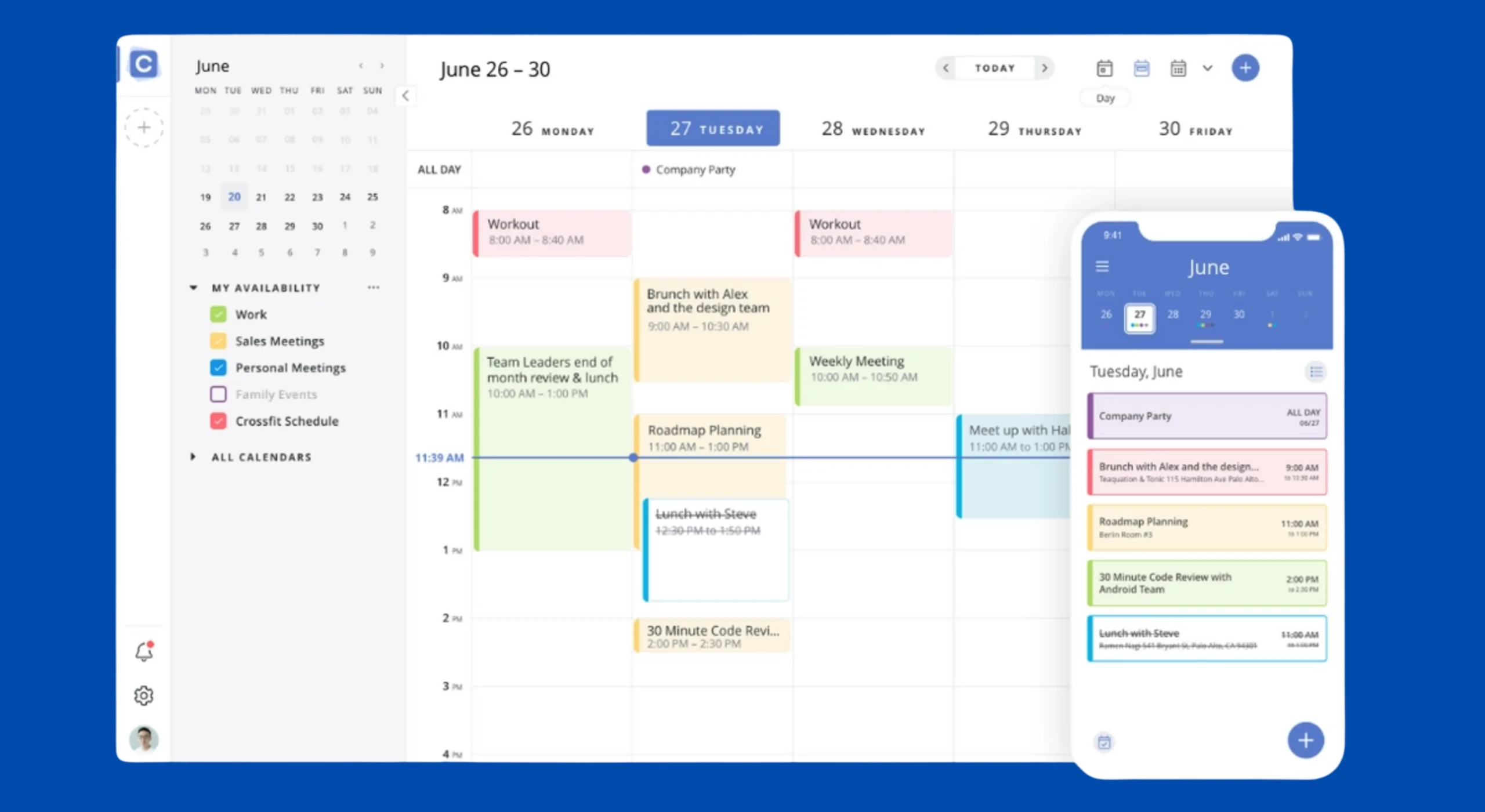Setting Objectives and Key Results (OKRs) and managing time effectively is crucial for delivering good products and services to customers. OKRs help professionals set tangible goals, such as increasing cold calling by 20%, and track progress in real time. This visibility is pivotal for keeping efforts aligned across teams and the organization. So, imagine how useful OKRs for time management could be when employed. Effective time management optimizes resources, keeps the workflows lean, and grounds decision-making in data. Business teams can quickly go through tasks to elevate daily operations.
And there are several tools that help with the above two functions. This can make it challenging to find the right solution. Testing multiple time tracking solutions and comparing them with each other can be tedious and exhausting (we’ve done it so you wouldn’t have to: see which time tracking software fares better).
In this article, let’s look at the top five tools that can help you set OKRs and manage time easily while remaining cost-effective.
1. Paymo
Paymo is a comprehensive time-tracking solution, ideal for teams working on multiple projects concurrently, as it helps track how many hours a professional is spending with a client or on a project on a granular level.

Having a time-tracking tool enables better daily planning and overall task management. When setting OKRs, group them in projects and task lists:
The solution can be integrated into any web browser to reduce friction. Users can simply select the project, list the task, and start the timer. Better yet, leave Paymo Track, its automated time tracker, run in the background and automatically map time entries to tasks:

Download Paymo Track for free.
After the task is completed, professionals can upload all the details to their timesheets with a single click. Record-keeping is essential for identifying bottlenecks and inefficiencies in daily workflows.

However, sometimes a team member may work on multiple tasks simultaneously. Paymo automatically tracks the time spent in every browser and desktop application, providing a precise record of where users spend their time, which you can link together within a task and project.

When on the go, the native iOS and Android apps will seamlessly connect in-field professionals with their colleagues, making it convenient for monitoring activities or reviewing the past week’s timesheets.

Additionally, with live reporting, managers receive time tracking reports automatically whenever someone views them, thereby decreasing their administrative workload. Moreover, each report can be shared with other stakeholders through email.
The reports themselves contain data points such as time spent on particular tasks, project margins, and employee performance to identify areas of improvement. This visibility helps keep the workflow lean, enhancing alignment.
Businesses can seamlessly integrate Paymo into their tech stack through Zapier, streamlining their processes. Paymo offers a free plan for freelancers and teams, with paid tiers starting at $ 5.90 per user per month, billed annually.
2. OKRs Tool
The OKRs Tool is a lightweight OKR management platform for fast-paced business teams. The platform’s intuitive interface ensures a smooth learning curve, accelerating adoption, even with non-technical stakeholders.

Additionally, the AI-powered features allow users to set goals in seconds. The software offers a variety of templates that can be customized further to fit the needs. Users can explain their goals in conversational English, and AI will create an OKR in under a minute.
The solution also offers task management capabilities, where each effort is connected to a key result, which is linked to the company’s goals. Moreover, teams can assign an owner to each effort or task for effective monitoring. This OKRs tool elevates clarity and transparency by communicating what needs to be done and how it contributes to the overall success of the brand so that professionals can remain focused on the action items.
Managers can schedule weekly check-ins to encourage team members to provide timely updates. Proactiveness can also help uncover operational challenges, allowing professionals to address issues before they escalate. Furthermore, as each task is connected to the company’s objectives, they will be naturally aligned. The platform’s tracking dashboards enable asynchronous communication among stakeholders.
The dashboard’s interfaces can help busy business leaders quickly spot which objectives are on track and which ones need attention. This means teams can shift their attention to things that need adjustments without chasing stakeholders for the latest updates.
The biggest advantage of the OKRs Tool is its pricing. Small teams with up to ten members can use it for free. The premium tier costs $30/month per team, which gives users all features, including AI insights, Slack and Google Workspace integrations, and live chat support.
3. Asana
Asana is a popular task management solution that helps teams with task-level coordination while aligning with strategic goals. Companies can collaboratively plan, organize, and track daily action items and link them with long-term business objectives.

Professionals can create goals at the organizational or team level and link the key results underneath. Then, assign an owner, set a deadline, and provide a progress metric to ensure efforts are aligned across the workflows.
As team members complete tasks assigned to them, they can mark them completed, which will automatically reflect on dashboards and project progress bars so that managers can easily keep an eye on multiple initiatives.
To speed up adoption, Asana offers templates for different requirements, such as marketing campaign management and product updates. These templates can be easily edited to meet current needs.
The tool sends automated updates and nudges to ensure timely task completion. Whenever someone comments on a task or a project, for instance, associated stakeholders will get notified instantly.
This helps agile business teams adhere to strict deadlines without compromising workflow efficiency and collaboration. Moreover, the fact that teams can access all information related to the company’s goals in one place increases accountability, which implicitly enhances time management.
Asana offers a plethora of integrations with commonly used business platforms, such as Google Workspace, Dropbox, and Microsoft Teams, to streamline adoption. Organizations of all sizes can easily integrate this platform into their tech stack.
Individuals can use Asana for free, and the first premium tier costs $10.99/user per month when billed annually.
4. Calendar
Calendar is a minimalistic, smart scheduling and time-management solution designed to help teams reduce clutter. Professionals today often have multiple calendars, making it difficult to fulfill all commitments.

This platform unifies various calendars into one, building a single source of truth for busy team members. As a result, they can plan their day more effectively and achieve a better work-life balance.
Additionally, the tool provides AI-driven analytics for actionable insights into daily planning. The AI model looks into different calendars, such as those from Google and iCloud, and suggests optimal meeting times based on data patterns.
Apart from simplifying daily workflows, Calendar brings visibility and accountability into task management workflows. Teams can allocate their work hours effectively, especially when booking meetings with external stakeholders.
Managers can easily review a typical week to find where team members are losing time, whether it is between tasks or while waiting for attendees in meetings. This helps in streamlining operations and achieving long-term alignment across the organization.
Furthermore, the minimalist time management solution is continually evolving to expand its capabilities. The upcoming features include Places, which will recommend meeting locations, and People, which will find who you are spending your time with.
The Calendar software comes with robust integrations for popular business tools, such as Zoom, Google Meet, Microsoft Teams, Stripe, and Salesforce. This makes it useful for various roles, such as account managers, sales representatives, and software developers.
The platform offers a free, forever plan aimed at busy professionals, but it allows users to connect only one calendar. The premium tiers start at $8/month per user, billed annually, which can unify three calendars per user.
5. Toggl Track
Toggl Track is an advanced time management platform with project and team management capabilities. The comprehensive solution auto-registers entries and sends them to other linked applications, such as Google and Outlook calendars.

A key standout feature of the tool is that it can work without an internet connection. It will record time on the local device and upload to the cloud safely whenever connected to the internet. This can be valuable for distributed teams or professionals who frequently travel.
The solution doubles down on accessibility by offering intuitive mobile and desktop applications for all platforms. Even tech-savvy professionals can access Toggl Track on their smartwatches, further streamlining productivity.
Another way it enhances productivity is by allowing professionals to add other stakeholders to their personal time entry. This prevents the duplication of effort across the team, especially when multiple members are working on a common task.
The platform builds operational resilience through approval and analytics features. Managers can audit the timesheets of various professionals and validate them to ensure compliance. The analytics capabilities provide detailed reports of billable hours and budgets.
This is key for ensuring the teams are focused on tasks that serve the organizational goal. On top of that, Toggl Track offers centralized dashboards where users can visualize timelines and alerts to elevate collaboration and alignment.
The versatile time management solution has helped businesses from different industries, such as marketing, software, legal, and education. Its vast array of integrations with commonly used platforms, such as Notion, Google Calendar, GitHub, and Jira, simplifies adoption for all.
The solution offers a free forever plan, great for small teams with under five members. The paid plans start from $9/user per month, billed annually.
Wrapping Up
Tracking OKRs and managing time effectively are pivotal for business teams to optimize resources while maintaining operational efficiency across the organization. OKRs align everyone around shared goals, and time management keeps professionals focused.
Some top tools in this category include the OKRs Tool, Paymo, Asana, Calendar, and Toggl Track. These options are lightweight, easy-to-use, cost-effective, and integrate seamlessly into existing tech stacks.

Hazel Raoult
Author
Hazel Raoult is a freelance tech writer who collaborates with PRmention. She has over eight years of experience writing about B2B, emerging technologies, entrepreneurship, and all things SaaS. Hazel enjoys splitting her time between writing, editing, and spending time with her family.

Alexandra Martin
Editor
Drawing from a background in cognitive linguistics and armed with 10+ years of content writing experience, Alexandra Martin combines her expertise with a newfound interest in productivity and project management. In her spare time, she dabbles in all things creative.

